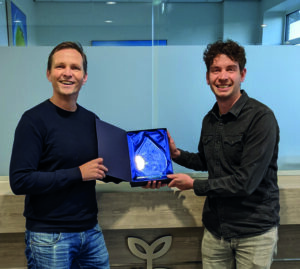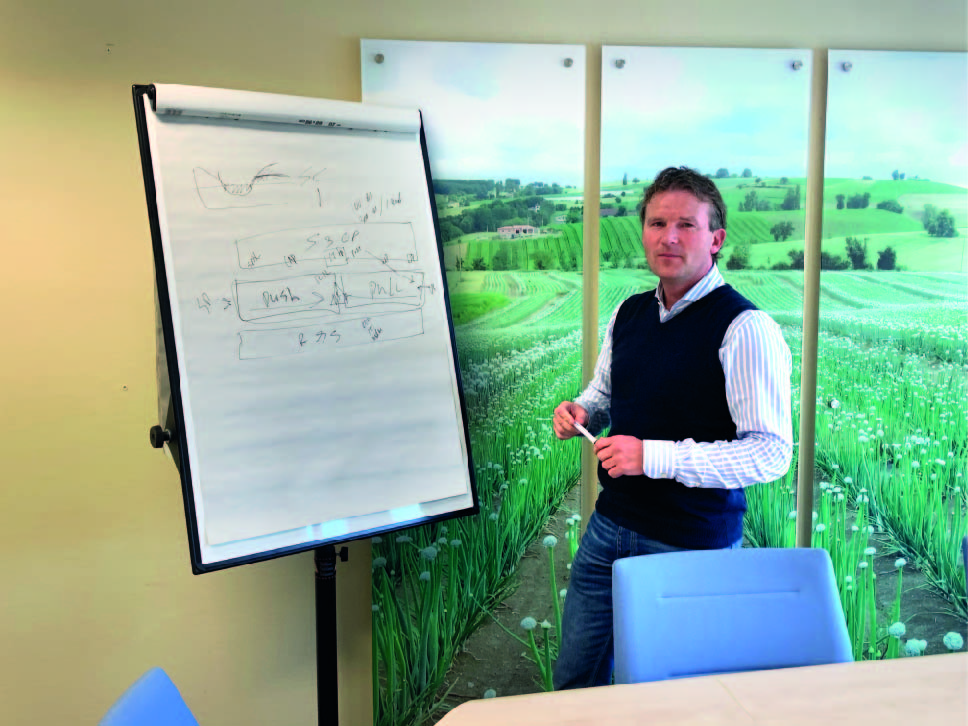Bejo Zaden, an international family-owned company that breeds, produces and sells vegetable seeds, has its origins and headquarters in Warmerhuizen. From there, over 2,200 employees in more than 30 countries are managed. Bejo has started to implement major internal changes with the aim of keeping its stock more manageable. Besides the Sales & Operations Planning process (S&OP), changes are also being implemented in the Enterprise Resource Planning (ERP) system and the integrated planning process. The period of change ahead will therefore require a lot of resilience and flexibility from the organisation and employees.
Nick and Koen talked with Edward van Stiphout, Interim S&OP/Supply Chain Planning manager, about developments within Bejo Zaden’s supply chain.
You can also read the interview here in pdf
Nick: Could you tell us how you joined Bejo and what your role is?
Edward: I have a background in Logistics Economics. After a number of planning positions at companies such as Unilever, Coca-Cola and Bavaria, I started working for myself. As a self-employed person, I worked mainly in the Fast Moving Consumer Goods (FMCG) industry. At Bejo Zaden, I am responsible for the supply chain department. I also use my experience with S&OP to prepare the supply chain for the upcoming changes in control, alignment, responsibilities and systems.
Nick: Why is resilience important in Bejo’s supply chain?
Edward: Seeds are a natural product, which creates challenges. On the one hand, you have production, where there are uncertainties about quality, weather conditions and therefore quantity. In addition, it takes two years before planned production is actually available to sell. On the other hand, there are many challenges on the demand side due to changes in the market. A resilient supply chain that can respond quickly to changes in both the supply and demand sides is very important. Stock management plays an essential role in this. That is why we are now working on the S&OP process, to get a better alignment of the different departments and systems.
Nick: How do you prepare the supply chain for deviations in production?
Edward: There are several possible causes for crop failure. For example, harvesting depends on external conditions, such as nature. In addition, a crop may fail due to disease or improper seed handling. Small deviations in production are covered by an emergency stock. This stock is determined with the help of historical figures. Long-term deviations are more difficult to resolve and their causes are not always clear. That is why we put a lot of energy into making seed production more reliable and into understanding why crops fail. Another key driver impacting inventory levels is the Demand component in the S&OP process. We are therefore going to improve demand forecasting by setting up a new department on this, implementing a planning tool and setting up a Demand Planning process.
Nick: So you are on the eve of big changes. How do you ensure resilience among employees in preparation for these changes?
Edward: We have to keep the end goal in sight, in our case making the stock more manageable in a working process, and accept setbacks. Resilience starts with good preparation. The better the understanding about the planned changes and the things that can go wrong, the better you can assess the risks. In addition, departments have to cooperate a lot with each other during preparation, implementation and after implementing the change. It is important that there we
all have an understanding of each other’s challenges, to create trust in each other’s ability. In addition, everyone should be aware that there may be setbacks, and that the process can be quite long. Resilience, then, is not resigning oneself, but continuing full of energy towards the end goal. Currently, we are working with different teams, departments, systems and processes. This makes the journey a challenge, but not impossible.
Koen: What competences do you expect from colleagues in the team?
Edward: Pro-activeness As a supply chain department, and also during the process of change, it is essential to connect people, both inside and outside the department. I expect everyone to take the initiative to understand each other, create transparency and identify mutual expectations. We as a supply chain department try to set a good example; positively and constructively seek cooperation, so that others will then follow. In addition, perseverance is important so that you don’t quit at the first setback. And personally, I think a flexible work-life balance is important. There is no problem doing a little extra in the evening once in a while, but you also need to be able to put your phone away and focus on your private life.
Koen: Do you have any tips for young professionals?
Edward: If you have just finished studying, it is important to see the complete picture. Consider your own career, but remember that you are hired to do a job. Clients want to give you a place to develop and learn, but you are primarily hired to carry out an assignment. So make sure you do that job to the best of your ability and, in addition, think about your own career and development. Make sure you ask questions and show that you want to understand things. The most important tip is to make sure you are proactive. I am not normally into management books, but I regularly quote Covey’s seven traits of effective leadership. I would definitely recommend those to people.

In 2022, for the long-standing cooperation, we presented Bejo with our "Customer of the year” award. At the presentation, Ujendre praised the open and proactive communication between Bejo and Set. A handful of trainees have joined Bejo in recent years and several vacancies have been filled. Remco Witte (left), operations manager, accepted the award along with Max Pronk (right), a business process engineer at Bejo who first worked at Bejo through Set.
Click here to read more interesting articles
